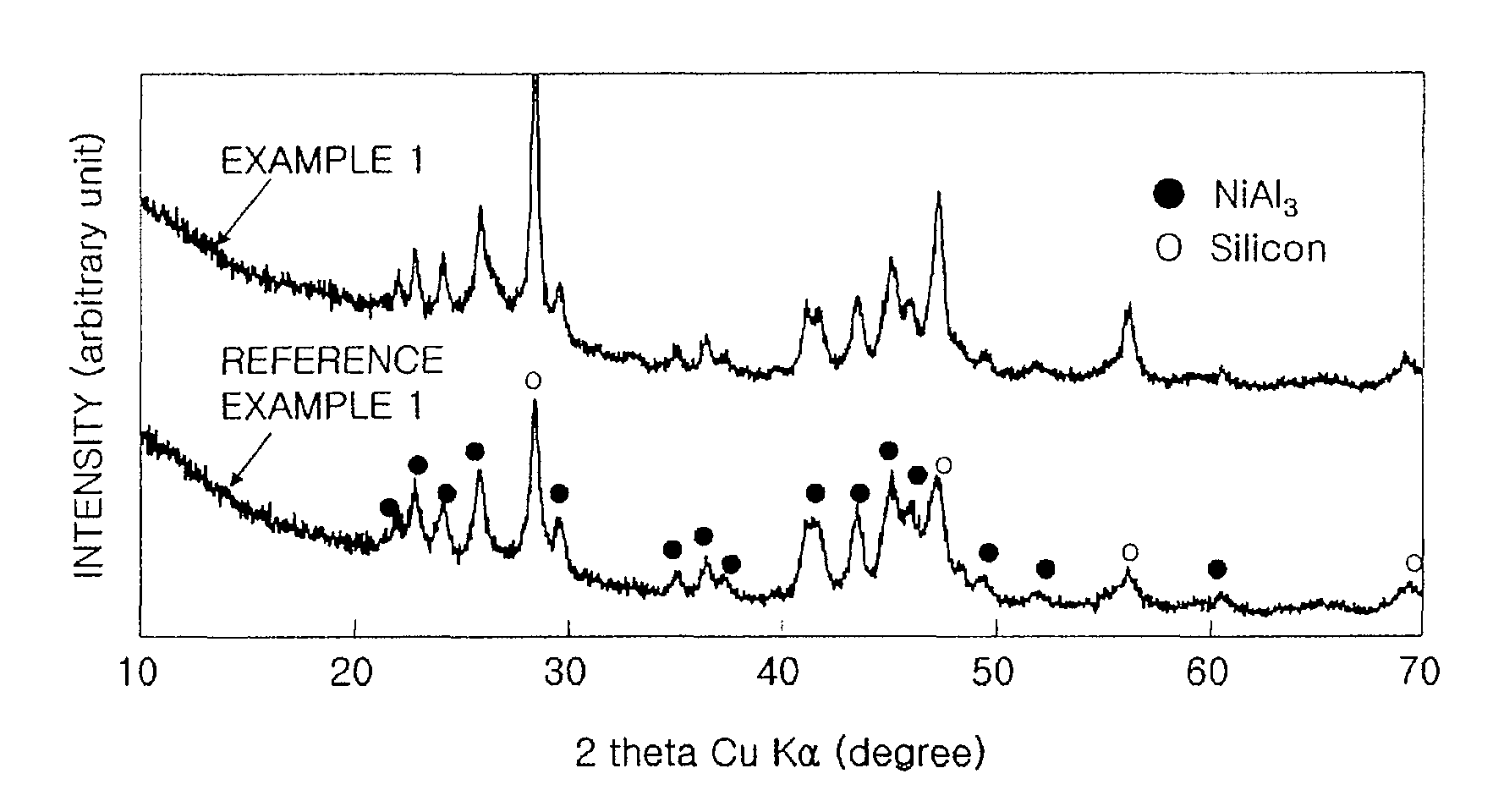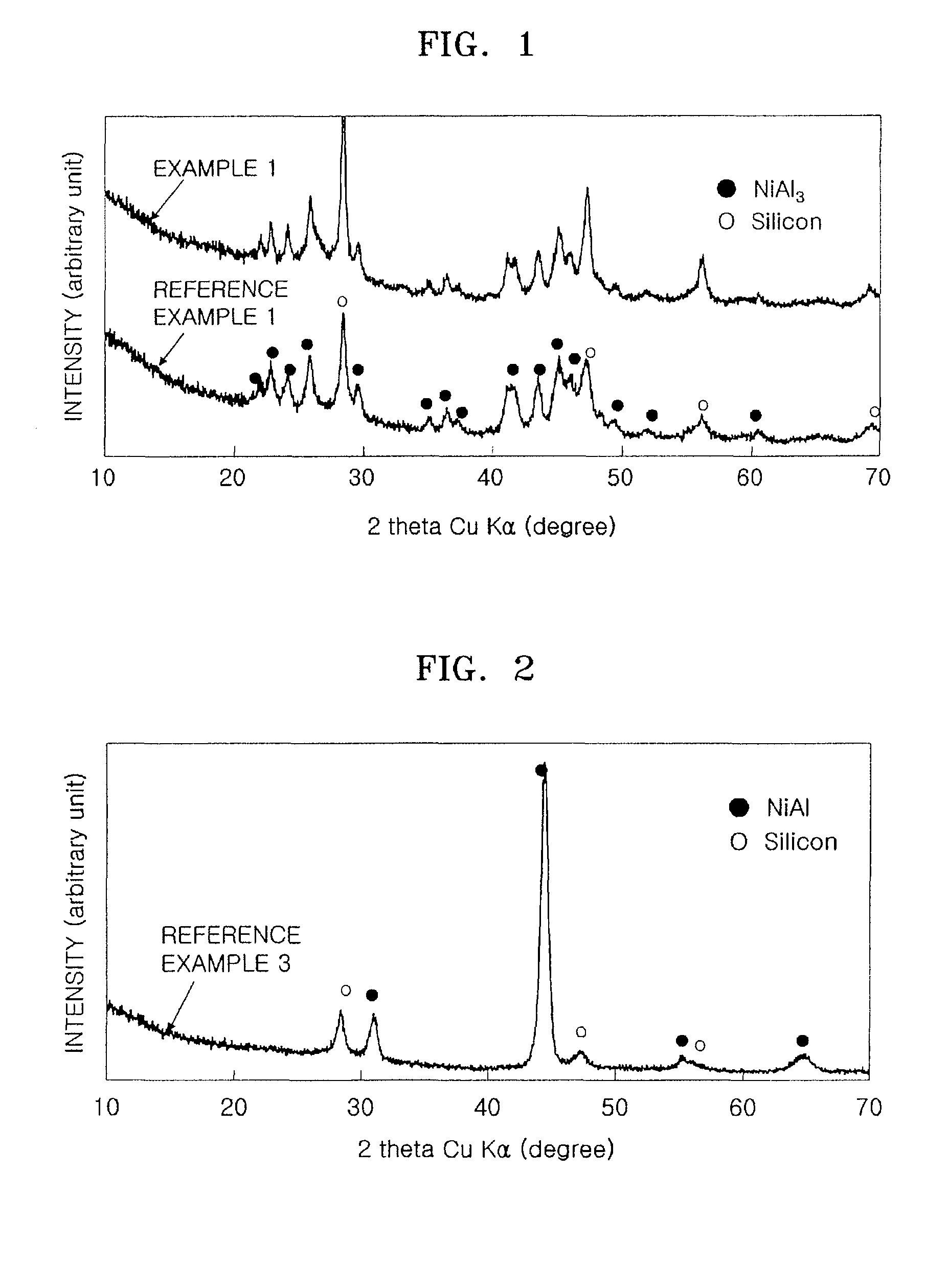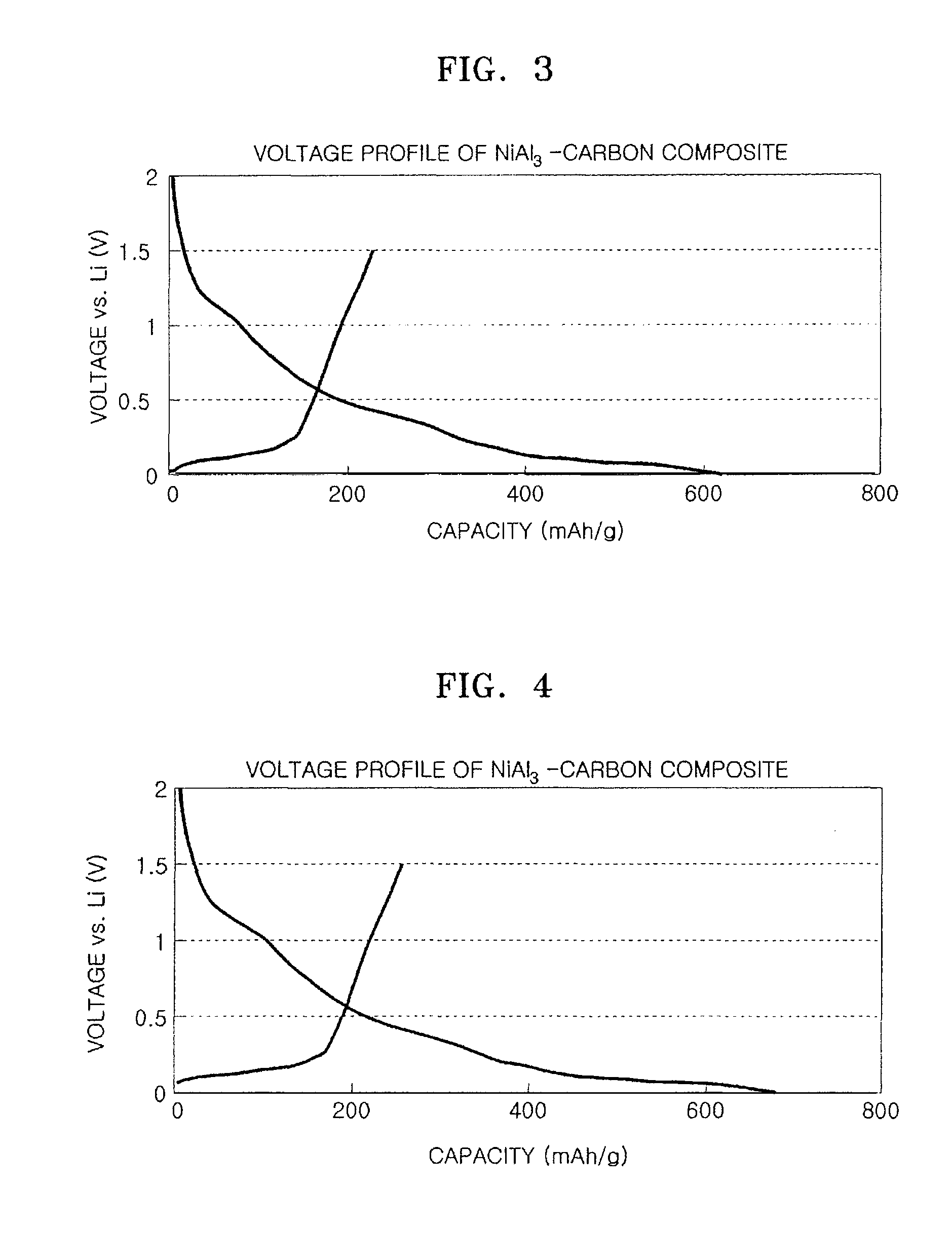Composite anode active material, with intermetallic compound, method of preparing the same, and anode and lithium battery containing the material
an active material and anode technology, applied in the field of composite anode active materials, can solve the problems of shortening the internal space between the anode and the cathode, affecting reducing the charge and discharge efficiency of the battery, so as to improve the initial coulombic efficiency and excellent charge and discharge characteristics
- Summary
- Abstract
- Description
- Claims
- Application Information
AI Technical Summary
Benefits of technology
Problems solved by technology
Method used
Image
Examples
example 1
[0061]1.0 g of silicon powder having an average diameter of 50 μm (Noah Technology, USA), 1.8 g of NiAl3 powder (Cerac, USA), 0.2 g of artificial graphite powder, and 8 steel balls weighing 21 g were combined in a hardened steel container. The container was filled with argon and closed. The resultant mixture was then milled using a mixer (SPEX Certiprep, USA, Model No. 8000M Mixer / Mill) for 60 minutes to produce a Si / NiAl3 / graphite composite anode active material.
example 2
[0062]A composite anode active material was prepared in the same manner as in Example 1 except that 1.0 g of silicon powder having an average diameter of 50 μm (Noah Technology, USA), 1.6 g of NiAl3, and 0.4 g of artificial graphite were used.
example 3
[0063]A composite anode active material was prepared in the same manner as in Example 1 except that 1.0 g of silicon powder having an average diameter of 100 nm (Nanostructured and Amorphous Materials, USA), 1.6 g of NiAl3, and 0.4 g of artificial graphite were used.
PUM
| Property | Measurement | Unit |
|---|---|---|
| diameter | aaaaa | aaaaa |
| diameter | aaaaa | aaaaa |
| diameter | aaaaa | aaaaa |
Abstract
Description
Claims
Application Information
 Login to View More
Login to View More - R&D
- Intellectual Property
- Life Sciences
- Materials
- Tech Scout
- Unparalleled Data Quality
- Higher Quality Content
- 60% Fewer Hallucinations
Browse by: Latest US Patents, China's latest patents, Technical Efficacy Thesaurus, Application Domain, Technology Topic, Popular Technical Reports.
© 2025 PatSnap. All rights reserved.Legal|Privacy policy|Modern Slavery Act Transparency Statement|Sitemap|About US| Contact US: help@patsnap.com



